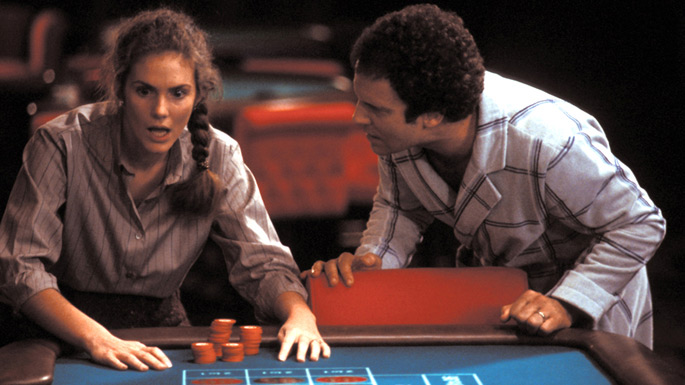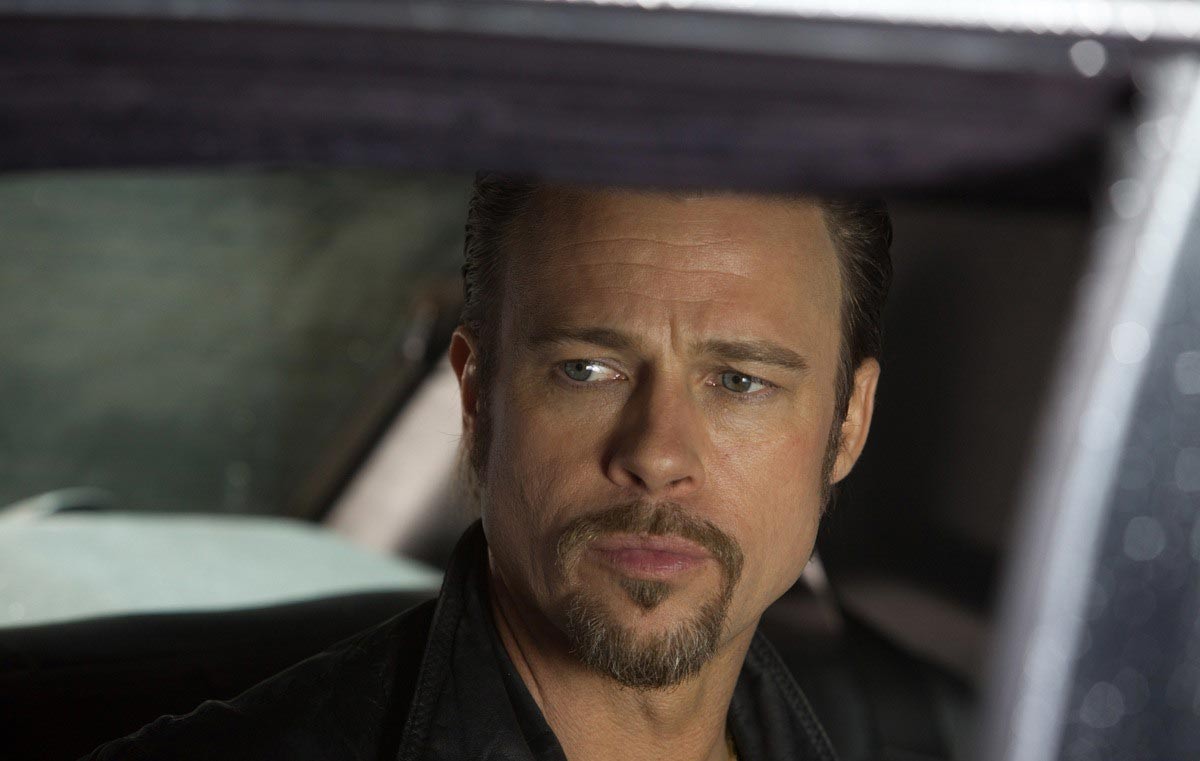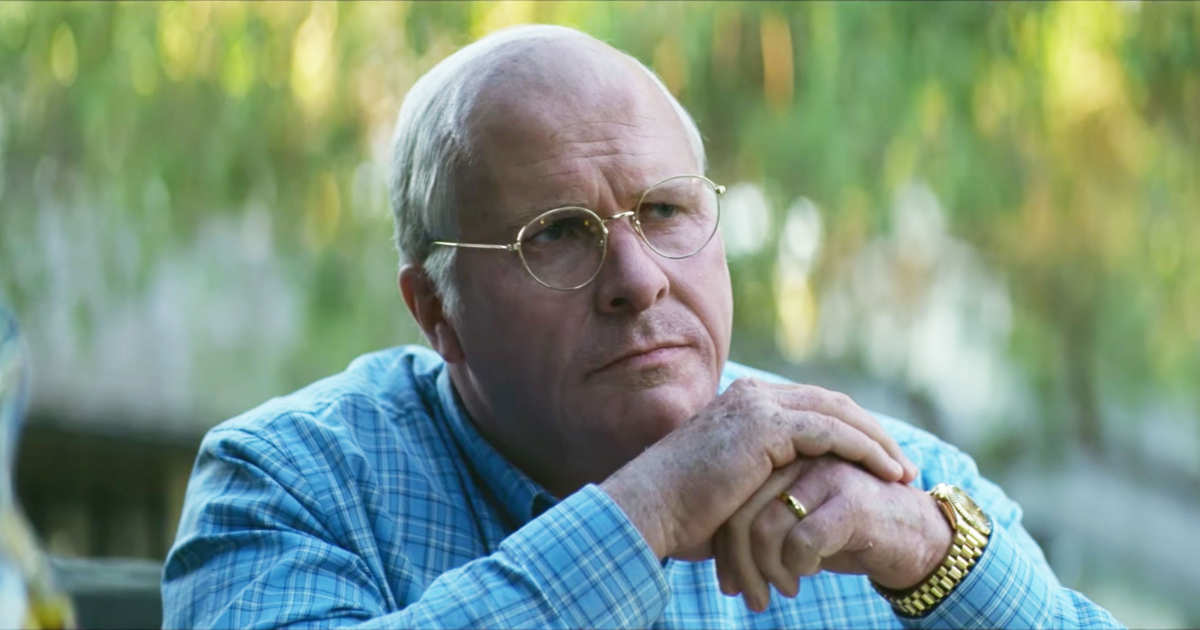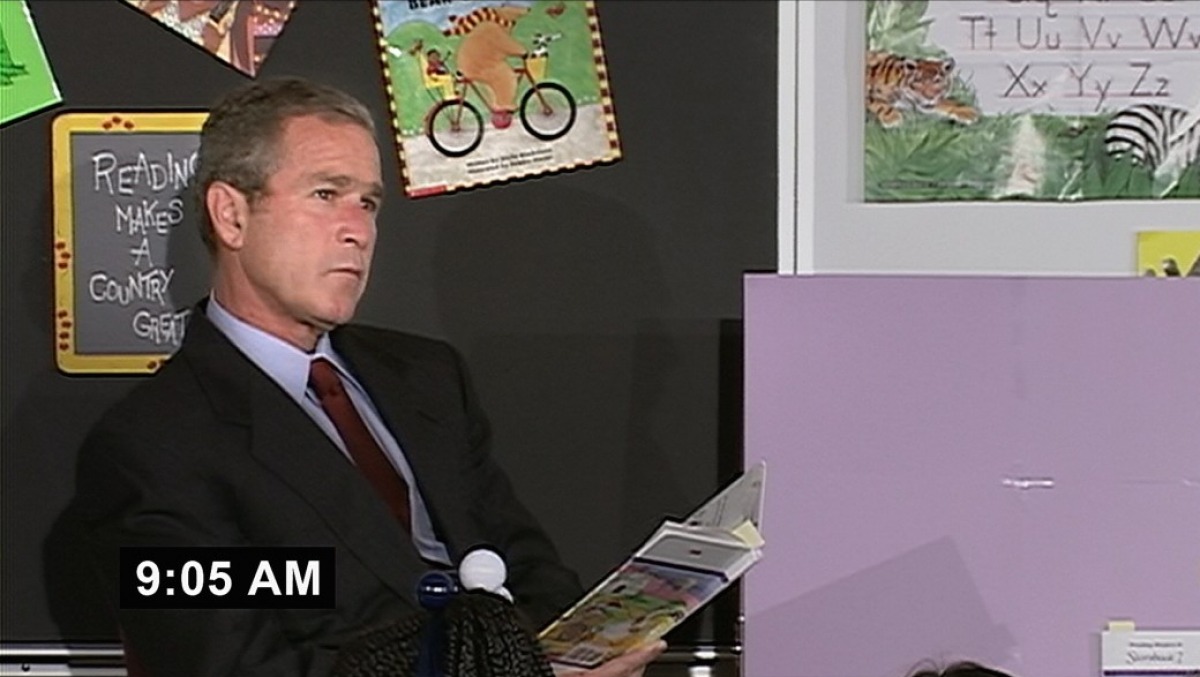6. Lost In America (1985)

Yet another heavy-handed film that reveals its message in its title. Another critique of 80s greed and not even the last on the list, Lost in America does not have its characters literally lost so much as figuratively lost in the promise of the American dream, how insightful. They look to replicate the lives of those in Easy Riders, maybe the most conspicuous symbol of counterculture ever, and then the satire of Reagan-era values goes from there.
There is not too much to say about the film because it is not so much about one scene as it is the attitude of the characters. Hagerty’s wide-eyed optimism about the future and Brooks’ constant disillusionment with what wealth has brought him make for a run-of-the-mill look at the emptiness of materialism. Both characters lose everything but of course no blame is placed at their feet but rather the system that has left them feeling so empty. They are not ultimately culpable. Instead, it is the society that has made even the wealthiest want to rediscover who they are because of how vapid their lives have seemingly become. Holding the main characters at least partially accountable could have made for a layered message but as it stands Lost in America just kind of fizzles by lazily saying “money is bad” in a long, conventional way.
7. Killing Them Softly (2012)

Killing Them Softly is one long labored attempt to prove America is awful. It changes the time period of the novel from the 1970s to the 2008 Presidential election and the implosion of the housing market only to its own detriment. What the film mostly consists of is gangsters droning on about their business with the news in the background. Dominik makes the appearance of news tedious thanks to the frequency with which he alludes to events in the real world. Instead of letting the viewer absorb the crime story that is supposed to propel the film forward he likes to keep on tapping them on the shoulder to remind them America itself is no better than the criminals that run its streets.
It takes so much pleasure in deviating from the source material to incessantly bother the viewer over the financial crisis that is taking place. Its mobsters awkwardly talk about the economy as if they are students of late-stage capitalism when they logically should not be concerned about this at all. The effect is a film whose social commentary is equal parts clunky and preachy, with an ending monologue that is so cynical and ineloquent it seems prime to be featured on a news cycle today. Instead of taking the hard route like The Godfather or Once Upon a Time in America, which both end up being stories of capitalism in their own way in a backhanded manner, Killing Them Softly says it upfront. “America’s not a country it’s just a business” And likewise Killing Them Softly is not a good movie, it is just rubbish.
8. Vice (2018)

The best political films are most commonly the ones that tame their own bias. Bias can never be taken out of the equation in any piece of art or journalism but controlling said bias and considering multiple perspectives is most likely what is going to allow films to endure for much longer than their time in the theater. Vice was met with a lukewarm reception in large part to its refusal to contain its own bias, which comes up violently in the most absurd of ways.
McKay, for some reason, is really proud of the visual metaphors in this film. It uses images and clips of the human heart and fly-fishing in an in your face, strained way. He will flat out cut away from the action on the screen in order to show one these images to link them to the heartlessness of Dick Cheney himself. The worst of all has to be when Cheney is convincing Bush of picking him for the Vice Presidency, as the conversation is laughably intercut with a fishing line reeling an actual fish one.
Like so many of the films on the list, Vice totally doubts the viewer’s ability to deduce any of the subtext in the film and the egos of the characters on screen. McKay lets Rockwell, Carell, and Bale run wild in this film. Bush is just inches away from the bumbling idiot he was on SNL, and Carell and Bale come off as near demonic figures with their conniving grins. It is like the one scene in Oliver Stone’s W. where loud, thunderous music is played over Cheney talking about oil.
The script is convinced the politicians were actually supervillains, and the lack of humanization for pretty much everyone involved makes for a stiff, and overwrought summation of Cheney’s life. But never forget what the film hates more is the American audience that may have even walked into support the film. It goes out of its way to add a mid-credits scene of a woman talking about what she wants to see is the next installment in the Fast and Furious franchise. Whoever made the decision to put that in must have thought it somewhat poignant, but its stab at Americans and their disinterest in the “important” matters is barely even as clever as the franchise it looks down upon.
9. Wall Street (1987)

Speaking of Oliver Stone, Wall Street has to be recognized as one of his most self-indulgent features. Wall Street has not endured tremendously but it still has a solid following and had a great run back in 1987, when everyone was running high on the director. But all these years later, Wall Street shows its age and weaknesses very transparently.
What the film really boils down to is Gordon Gekko delivering sermons on capitalism in the country. He talks about how rigged the system is and how the wealthiest one percent ones everything. He does not care about the truths of any of this nor does he care about the accumulation of his own things. He is there to win and to destroy others. Greed, the very thing he loves most, is the thing that drives him forward, nothing else. His flat characterization is the cornerstone of the film’s hubris, as he pontificates on the nature of wealth in a horribly overdone manner for an absurd amount of the runtime. And Bud Fox does not get much better. His character arc is made of him selling out his family by pursuing money and then redeeming his honor by giving everything up.
Douglas’s performance may cover much of the film up, but it ultimately boils down to a basic tale of morality and a satirical spin on what Stone thinks of this country. But the tale of Bud being portrayed did not need the proverbs of Gekko to work. It still would not have achieved too much but avoiding the contrived speeches Gekko delivers not only would have made the film less heavy handed, but possibly could have kept away the influx of brokers it accidentally inspired.
10. Fahrenheit 9/11 (2004)

Fahrenheit 9/11 more than anything else is very ostentatious. It loves pulling the rug from under the viewers to reveal some horrible truth about American politics when some of the connections it makes are not true. This is not an argument about the information that is presented as factual but rather the presentation itself. Moore rapidly goes through talking points with little to no elaboration. Its accusations regarding the Bush family’s ties to Bin Laden and the Saudi departures are barely given any attention despite being bombshell revelations if true. This ultimately makes the documentary appear less sure of itself and more just a concisely edited take on Bush’s presidency, best indicated by Moore’s treatment of Iraq.
Iraq is treated as a peaceful sovereign nation that is a victim of American imperialism, yet its own status was under question thanks to disputes with the United Nations. Moore has images of children playing and tranquility replaced with tanks, weapons, and soldiers in a helplessly flashy attempt to unmask a hidden nature of the country. And when it is not ignoring vital facts to the conversation about the war on terror, Moore goes back to the comfort zone where he is free to sloppily insult the upper crust which evades war and leaves the poor to fend for the country.
The film was immensely important at the time of release but looking back it is easy to see that Moore was looking to muckrake things that need not to be muckraked. So much could be lambasted when it comes to the war in Afghanistan and that Presidency, but it should not be said in an over-embellished, ponderous way.